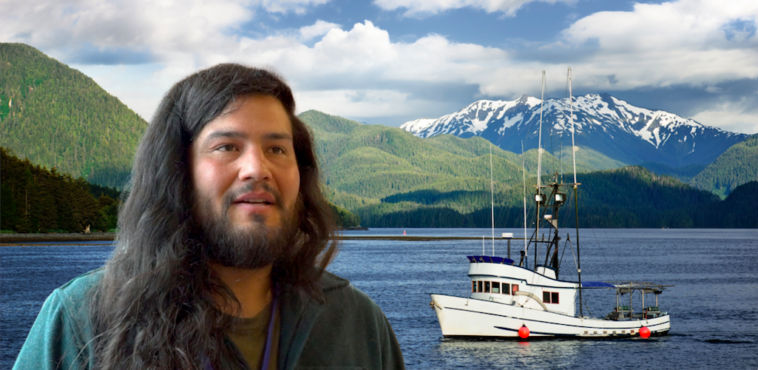Last week, 80 fishers and industry experts across the province gathered for the B.C. Young Fishermen’s Network annual meeting at Campbell River’s Maritime Heritage Centre.
Harvesters of salmon, geoduck, urchins, crabs, prawns, and more sat down to share their experiences and learn from each other. Many are new to the industry and were there to learn from seasoned fishers with decades of experience, often coming from generations of fishers.
At the conference, James Lawson, the president of the United Fishermen and Allied Workers’ Union/UNIFOR, talked to The Skeena about the many challenges facing young fishers, and why he remains hopeful for the industry’s future.
“I think the future is not bright yet but looking brighter.”
James Lawson, president of the United Fishermen and Allied Workers’ Union
“I’ve been a commercial fisherman since I was 13. My first jobs were with my grandpa, and then I worked with my dad for years after that,” said Lawson, of the Heiltsuk First Nation, in this exclusive West Coast Now interview.
Credit: The Skeena
He spoke openly about the controversial issue of corporate monopolies controlling fishing licences. “I think prawn licences right now are selling for $1.3 million. How is any young person going to afford that and be able to make a living going forward? You just can’t.”
“There’s no reason we need to have anybody holding fishing licences who doesn’t intend to fish … There’s a lot of hard work that goes into fishing, and we should be the ones that reap those benefits. We shouldn’t be sharecroppers,” he told us.
According to Lawson, the corporate takeover of fisheries is pushing out owner-operators, who are at risk of “fading away.”
If that happens, “we’re going to lose a lot of intergenerational knowledge, and that’s going to be an awful thing going forward,” Lawson told The Skeena.
Lawson is the face of young harvesters looking to change the industry to create sustainable jobs for all fishers. “If I thought fisheries are going to stay the way they are now forever into the future, I wouldn’t stay. But I think there is a lot of opportunity for change, and that’s why my generation has been staying around because we love the lifestyle.”
“I think the future is not bright yet but looking brighter,” he said, smiling.




